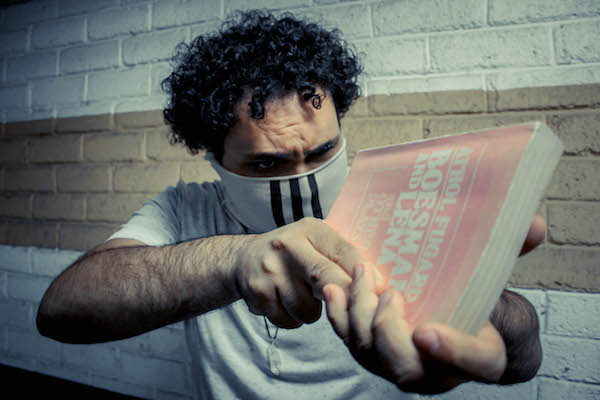“Just don’t go there and be gay, Angie,” says my grandma to me as I tell her about all the things I will do when I trek to the greatest country in the world: the Land of the Free.
I am not surprised; in fact, we’ve had this conversation a million times before. As an LGBTQ rights activist in Africa, you are never really safe, especially not in the rural settings I sometimes find myself in. Grandma is always worried about my safety; I am her favorite, after all.
What strikes me about it this time is that I am not relocating to rural, outright homophobic Africa. I am moving to one of the greatest and supposedly most liberal countries in the world; and, her concerns for my safety are just as valid.
In trigger-happy America, ending up dead because someone thinks a certain way about you is, evidently, as simple as walking to the corner store for a pack of Skittles.
The Orlando night club massacre that left 49 dead sent shock waves through the world; it sent a care message to the rest of us that the United States, the so-called beacon of democracy, was riddled with conservative terror akin to all those nations it spent years occupying for the sake of liberty.
And add to that regular reports of police brutality and unjust killings of Americans of African descent and an intensified sentiment of Islamophobia.
“You should cut your hair. Then you won’t look like a Muslim,” my friends would say about what they called my Jew-fro. “But, then you’ll look Mexican and they will deport you. Donald Trump is going to build a wall, you know.”
I’d brush off their concerns as silly banter; Americans were not going to vote that idiot into power, they’re not that dumb. I honestly believed that as a guest of the state department, I was safe from the type of violence we saw regularly—that is, until I was called into the embassy for a briefing on my year-long fellowship in Washington D.C.
“This is your DS-2019 form. These are your immigration papers. Have them on you at all times,” says the official handling my paperwork and travel arrangements.
“Like, in my wallet? You’re joking, right?” I ask.
“I would at least keep a copy on me to be safe; you don’t want any problems,” she responds.
For the first time, it dawns on me: I am officially an immigrant in the U.S. I am a gay immigrant… who is black…and looks Middle Eastern—or Muslim, to the average American. I am Public Enemy Number 1!
I quickly set up an appointment with my hairstylist and said goodbye to my curly locks. I scanned and emailed my immigration papers to relatives and friends and lawyers “just to be safe.” I packed my bags strictly to airline regulations and ended up at the airport.
Sure, I had legit immigration papers and you would think this would offer some form of protection. But what was I going to do—use them as a shield against bullets in the crossfire between EuroAmericans (and those institutions protecting their interests) and everybody else?
Police reports document the execution of 512 black people by police officers in the U.S. since the beginning of 2015, according to The Guardian’s online tracking tool. While the police killings of EuroAmericans are much higher than this, the proportion of African-Americans killed by police match to the total population is more than double that of EuroAmericans.
I blame police bias against people of color in the U.S. on inflammatory, and more often than not, derogatory rhetoric thrown around, dressed as freedom of speech. Public support of dangerous racist and xenophobic attitudes by presidential candidates is a prime example of this. Responsible leaders are meant to support social cohesion, not fuel an already toxic situation.
My country, South Africa, also comes from an apartheid past and has placed human dignity as a top priority in our Constitution for the sake of reparation. An important feature of our Constitution is legislation that makes discrimination based on race, gender, sexual orientation, and disability illegal; this includes hate crimes such as hate speech.
Our government realized very early on that protecting people’s right to dignity is the only road to social cohesion, as it offers universal protection to all, especially minority groups, at every level of society.
Yes, people may not respect the right to dignity of many groups in society; but, the laws in place allow for recourse in instances where parties are negatively affected by the actions, and even utterances, of others. It also makes people wary of the things they say and, in effect, affects the social perceptions of certain groups, because toxic attitudes have no space to fester in the public realm.
But, what do I know? I am just an immigrant from Africa—a gay immigrant, if you’re my grandma. I’ll just keep my fingers crossed and throw some bones every time I leave the house and hope my African ancestors are with me as I brave this concrete jungle.
Angelo C. Louw is journalist by profession and an activist at heart. He is the former editor-in-chief of South Africa’s largest youth magazine, UNCUT. He is currently a Fulbright/Hubert H. Humphrey Fellow based at the University of Maryland.
Save



